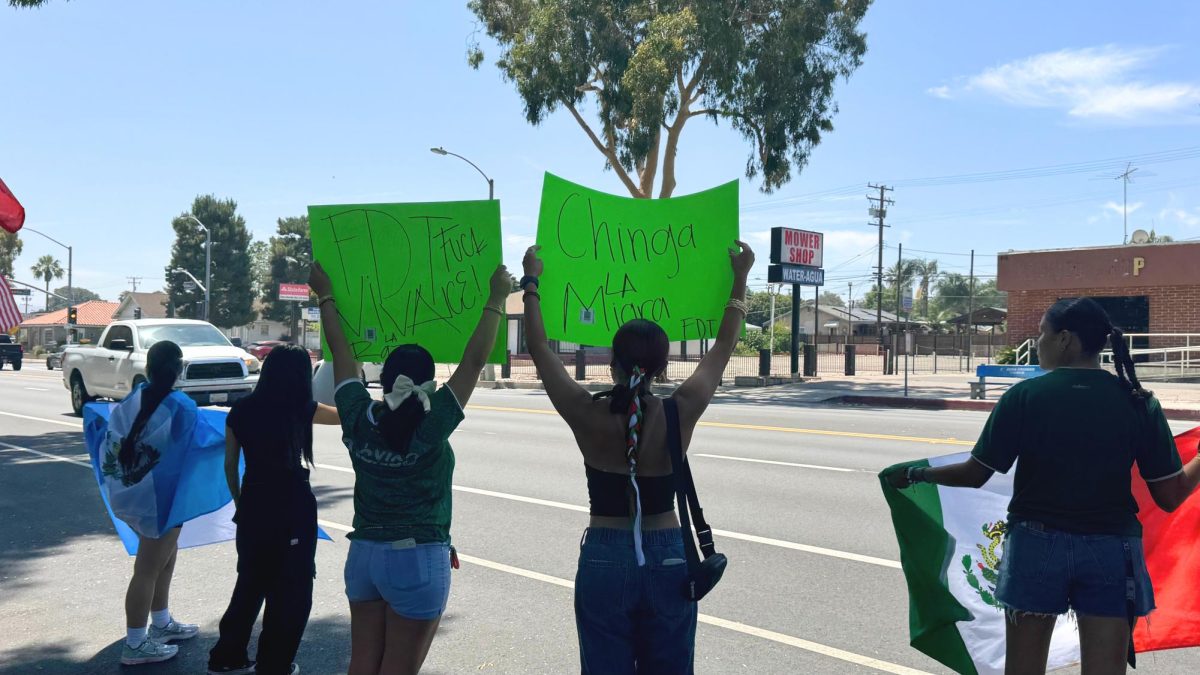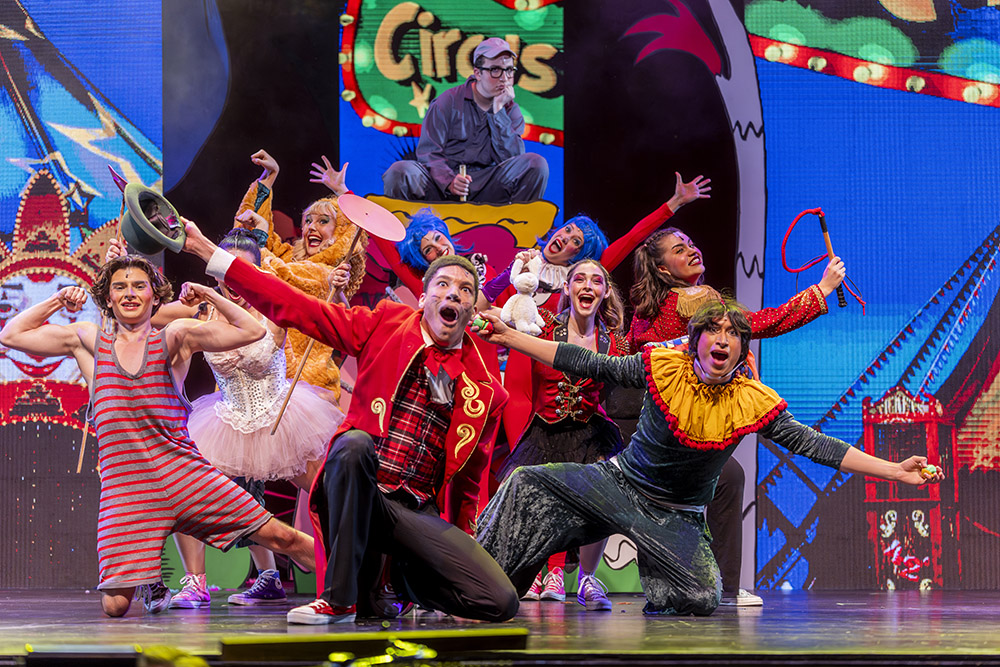By Marissa Moreno
The sound of guest band Mariachi Primera Generacion echoed throughout Riverside City College during the opening of the faculty-led event held in honor of Cesar Chavez on March 29.
The Fields to Faculty Celebration took place in front of the Bookstore Promenade and was open to the entire campus. Faculty members shared their stories, all of which addressed the struggles they faced on their journey to academia. They also urged the Latin community to continue their studies.
Monica Delgadillo, associate professor and counselor at RCC, was the first faculty member to share her story. She pondered for a moment before holding out the United Farm Workers flag toward her audience.
“I want to tell you a little bit about why I have this,” she said. “I went to college in the ’60s. We protested everything.”
Delgadillo explained that her family participated in the grape strikes that took place between 1965 and 1970, which resulted from the poor pay and working conditions of the vineyard growers.
Like some of her coworkers, Delgadillo is the daughter of Mexican immigrants.
She later explained that the overall message she was trying to convey through her story was more than that of an individual demanding better treatment of her fellow community but one that impacts the RCC community more directly.
“It was about showing the struggle and understanding that our forefathers have carved a pathway for us to get our education,” she said. “Latinos represent 40 percent of the student body here at RCC. Do we have enough Latinos as staff? No.”
According to the National Center for Education Statistics, in the fall of 2015, a census found that out of the 1.6 million faculty working at degree-granting postsecondary institutions that worked full-time, only two percent were Hispanic males and two percent were Hispanic females.
Delgadillo believes there should be visible inclusion of Latino faculty in RCC, especially because a majority of the campus’ demographic is Hispanic.
“We should be reflective of the population we serve,” she said.
The Association of Mexican American Educators Journal published an article that addressed the impact of Hispanic-Serving Institutions in American higher education.
It looked at several studies done across colleges, especially community colleges in California and Texas where the majority of HSIs are located and analyzed their findings.
“Latinx teachers play a significant role in strengthening the educational pipeline for Latinxs students,” the article states. “They likewise draw our collective attention to the need for enhanced consideration of the way these individuals are served within the HSI context and their potential to contribute to Latinx success nationally. Latinx teachers have the potential to combat deficit notions commonly held in traditional education spaces.”
Delgadillo and the rest of the staff that spoke at the event also emphasized the importance of Latino students helping and encouraging one another to continue in their studies.
Clarence Romero, associate professor of psychology, further pushed the importance of this message.
“We are here for the youth, for the future and we will get them there,” he said.
Members from the audience cheered in agreement with Romero. They broke out chanting in unison, “Si, se puede,” Cesar Chavez’s coin phrase meaning “Yes, you can.”
In essence, the stories of the faculty conveyed the message that Cesar Chavez worked to establish: that despite all the hardships, Latinos should continue to make progress thus enables subsequent generations to reach further than the ones before.
“What I’m trying to get at ladies and gentlemen is this: you are the future,” Romero said. “We need you to get educated. We need you to follow. Do not deny and do not be afraid of failure.”













